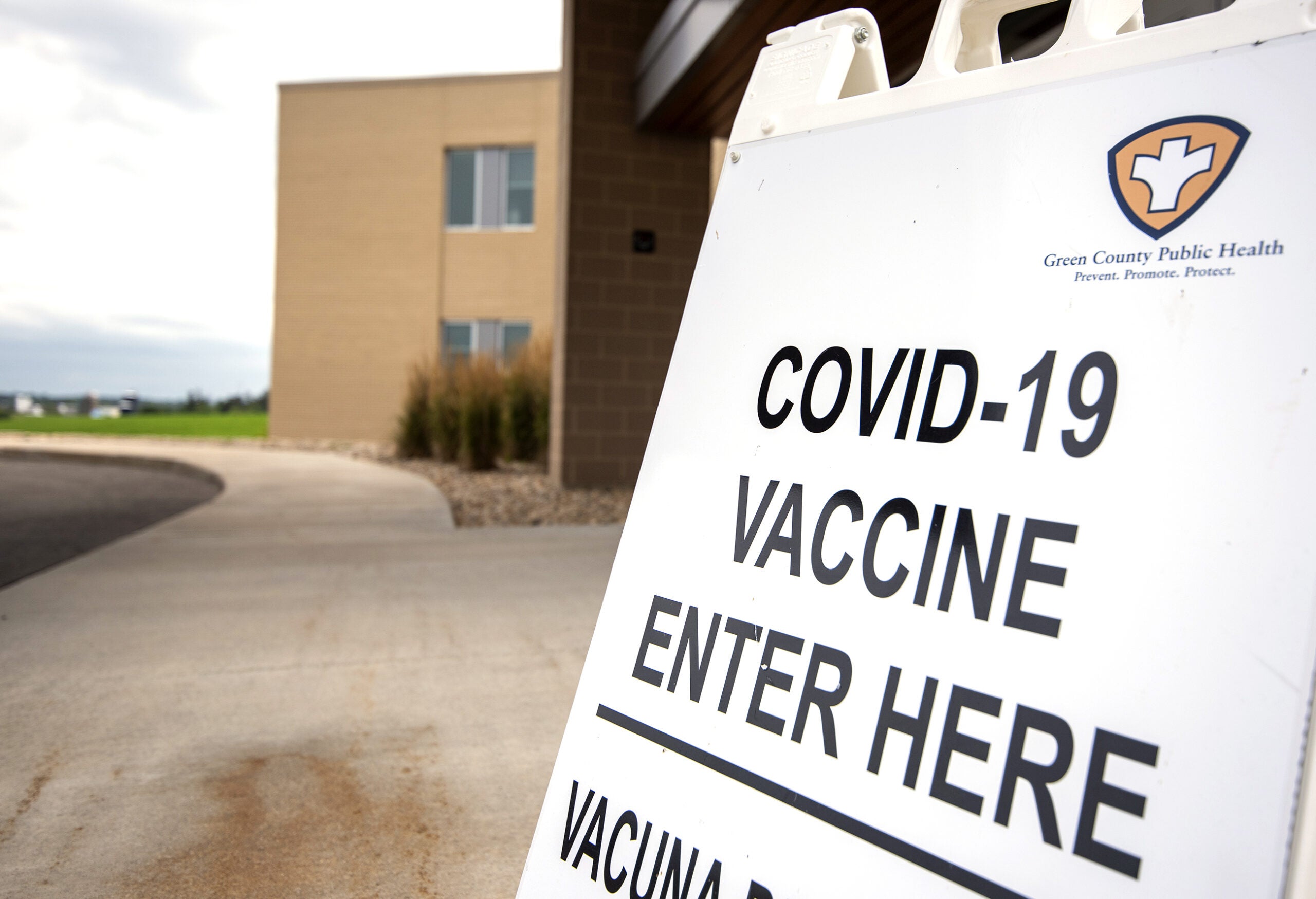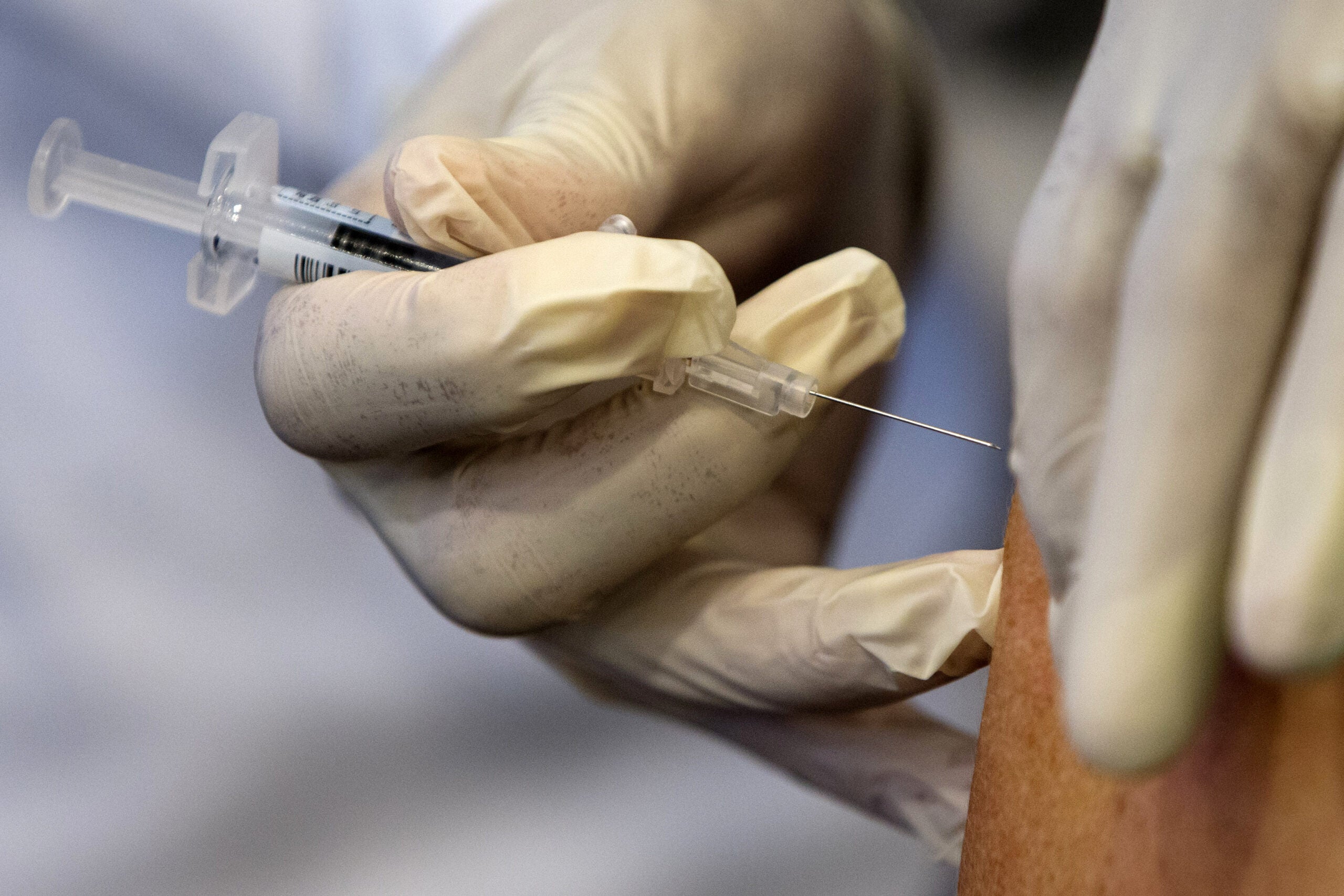Wisconsin health care providers say they’re preparing to start administering booster shots of COVID-19 vaccines while also continuing their work to get more people immunized against the disease for the first time.
Federal health officials announced Wednesday that booster doses of Pfizer and Moderna vaccines will become available to adults starting toward the end of next month.
The U.S. Department of Health and Human Services said in a statement booster shots would “maximize vaccine-induced protection and prolong its durability,” NPR reports. Plans to allow the booster shots are tentatively set to come into effect starting the week of Sept. 20, pending the results of U.S. Food and Drug Administration evaluations on the effects of a third dose.
News with a little more humanity
WPR’s “Wisconsin Today” newsletter keeps you connected to the state you love without feeling overwhelmed. No paywall. No agenda. No corporate filter.
Dr. Nasia Safdar, UW Health’s medical director of infection control, said the need for booster shots isn’t coming as a surprise.
“There was this concern about how long it would take before you would need that, and there’s only one way to get the answer, which is time,” said Safdar. “You just have to see at what point infections start to happen again, and then that’s the time to administer the booster, and I think for us that that time has come.”
Safdar said vaccines are still generally effective against the delta variant of the coronavirus, but people’s immunity waning over time combined with continued community spread of COVID-19 makes boosters necessary.
“When you give another booster shot, all the memories that the body has of the immunologic ways it has to fight the virus, they come up to the fore,” said Safdar.
The infrastructure built up in previous months to administer vaccines can be deployed again once booster shots are approved, Safdar said.
“The ball will be in the court of the various health care systems and pharmacies and so on, and it really will be an all-hands-on-deck approach,” said Safdar.
For the City of Milwaukee Health Department, the focus remains on getting residents to start getting the vaccines, according to marketing and communications officer Emily Tau.
“We’ll be following (the Wisconsin Department of Health Services’) lead regarding administration of boosters when that time comes,” said Tau in an email.
Safdar said balancing the need to offer the booster shot while still giving people first doses “will be a bit of a challenge.”
“We absolutely have to make sure that there are no access barriers to people who would like to get the vaccine,” she said.
As of Aug. 17, 64.4 percent of adults in Wisconsin had received at least one dose of a COVID-19 vaccine, according to DHS.
Safdar said the months ahead will probably bring “a pretty busy respiratory virus season.”
“The most that we can do for COVID is to offer this, the booster vaccine so that at least get the case count down and have it be more manageable,” said Safdar.
Tau said Milwaukee’s health department started an initiative Tuesday to provide third doses of mRNA COVID-19 vaccines topeople who are immunocompromised.
That comes in the wake of the Centers for Disease Control and Prevention recommending that immunocompromised people get a third dose of the Pfizer or Moderna vaccines at least four weeks after their second dose. That change was made last week.
Soon after, the retail chain Meijer announced it would offer a third dose of the vaccine for immunocompromised people at its Midwest pharmacies. CVS and Walgreens have made similar announcements.
Meijer pharmacies will allow people to self-report that they are immunocompromised to qualify for a third Pfizer or Moderna booster shot. Statement appears to suggest those booster shots are available now. pic.twitter.com/a1mmjPC0at
— Mark Maxwell (@MarkMaxwellTV) August 16, 2021
The DHS said in a statement Wednesday it supported the decision to offer an additional dose to the immunocompromised, while noting that for now, “fully vaccinated people who are not moderately or severely immunocompromised do not need an additional COVID-19 vaccine dose.”
Wisconsin Public Radio, © Copyright 2025, Board of Regents of the University of Wisconsin System and Wisconsin Educational Communications Board.







